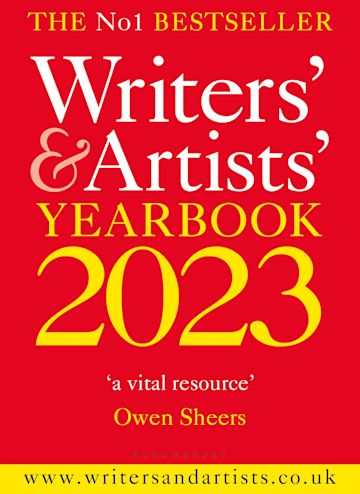In this extract taken from the Writers' & Artists' Yearbook 2023, scriptwriter and playwright Gill Kirk offers five essential tips one should consider when writing for theatre.

The first: a passion for human connection.
The best playwrights are passionate about connecting with other humans. They won’t tell you what to feel, but will present a human in a predicament, so that you snag your heart on the jagged nails of their character. They won’t bore, but lure you through their maze, ’til your Werther’s Originals are forgotten loot, and you’re unrecognisable from the ‘you’ of 7pm.
The second: acceptance that to do anything well, you must commit to constantly improving your craft; art is no exception.
Third: heck – just goddamned playfulness.
Why are we here … to bore? Who are we here for … us?
‘Of course not, Gill!’, I hear you roar. ‘We want to transport people. Challenge, tease, excite, soothe, calm, provoke.’ Excellent news.
This doesn’t need much explaining. Just don’t take yourself too seriously, even when writing the most gothic grimness. This is play. What you make and present is a gift. Keep a place inside yourself that’s light. It will make everything else (craft, connection, abundance and economics) much more fun.
Fourth: ‘abundance’ in self-help lingo, i.e. a furious refusal to be stingy and an embarrassing belief in creative incontinence.
Fifth: dahlings, it’s theatre! You must understand a little (or even better, a lot) of our industry’s economics.
If you think theatre tickets are expensive, try actually making theatre. Now that’s expensive – and ticket sales rarely cover the costs. It means everyone is underpaid and people give too much of their time for free. Don’t exploit them. This thing we do is a huge privilege. That means working-class writers – especially women – are rare; it’s hard to write, unpaid, when your priorities are caring, clothing, housing.

Alongside this, know that playwriting isn’t likely to be your only career. The myth of the full-time, well-fed playwright comes from an age when the curse of inherited wealth meant a chap just had to find something to do. Remember, doing other paid work feeds your imagination and connection, so that you can be the writer that you’re going to be. Yes, a playwright is a many-splendoured thing.
You’ve already sussed that they’re all equally important. Connect, build your craft, be playful, be abundant, be economically realistic. Interdependent, these five essentials nourish each other. Take care of them all and at the very least you’ll enjoy yourself in the wonderful world of writing for theatre. (Worst? You might become a millionaire. Be careful …).
This is an abridged version of an article taken from the Writers' & Artists' Yearbook 2023, available to order now from Bloomsbury.com
Gill Kirk is a scriptwriter and playwright whose work includes Skin in the Game, for New Wimbledon Theatre. She worked as a political lobbyist before setting up her own strategic communications consultancy in 2005. For more information see https://gillkirk.com, with links to her blog. Follow her on Twitter @gill_kirk.
Comments